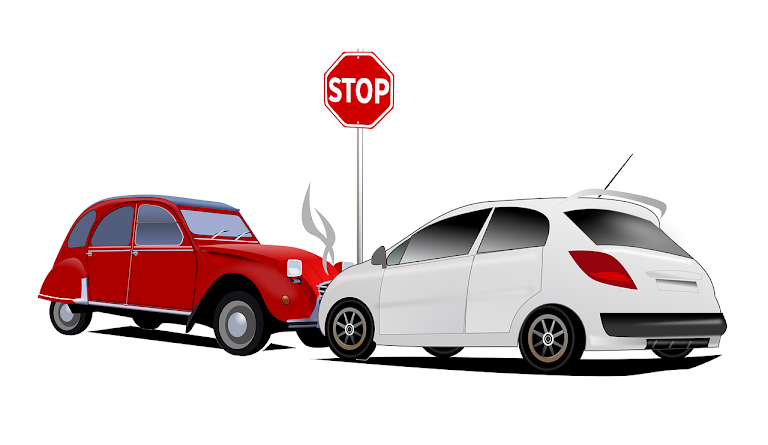
How Car Modifications Can Affect Accident Liability and Insurance Claims
It is common for car owners to modify their vehicles to meet their needs or preferences. In some cases, they modify the cars to meet certain lifestyle requirements, such as off-road driving, racing, or enhanced comfort during long commutes. In other cases, they might do custom paint jobs or get wraps for purely aesthetic purposes. Car modifications can have an impact on car accident liability and insurance. It helps to understand this impact, so you can make informed decisions about modification before making changes to your vehicle. If you already have modified your vehicle, knowing the impact can help you better navigate the insurance claims process.
Why Do People Get Car Modifications?
Car modifications are popular because it allows you to personalize the vehicle according to your needs. The most common reasons for car modifications include improving handling, enhancing fuel efficiency, increasing comfort, and customizing the vehicle’s appearance. Performance upgrades, such as adding a turbocharger or upgrading the suspension, can make a car handle better or increase its power. This is especially common among car enthusiasts, those who enjoy racing.
Comfort and convenience are also significant motivators for car modifications. Many people add features like upgraded sound systems, leather seats, or advanced climate control to make their driving experience more enjoyable. This is particularly common for vehicles that are drivers for long commutes or road trips.
Individuals who have suffered from a disability may need to get car modifications to improve accessibility and enable them to drive more comfortably and safely. Modifications for disability-related reasons could include the installation of wheelchair lifts, hand controls, and adaptive steering systems. These additions are designed to make it easier for individuals to operate their vehicles. These changes help provide independence and enhance mobility
Role of Car Modifications in Accident Liability
You can modify your vehicle in a range of ways depending on how you want that vehicle to perform. Most states classify vehicle modifications as features added to the vehicle after manufacturing. As long as the modifications are legal, there is no restriction as to how you change your vehicle. However, your state may have certain requirements for what can be changed. For example, some states don’t allow modification to the car’s exhaust system with the intent to amplify the amount of sound it makes.
Vehicle modifications can be critical to establishing liability in an insurance claim for an accident. For example, if a driver has modified their vehicle to have tinted windows, it may restrict their visibility, particularly in low-light conditions or at night. If an accident happened due to the inability of the driver to spot another vehicle, then the tinted window modifications could play a role in how liability is established in the case. The reduced visibility could be a contributing factor in a collision. If the tint is too dark or not legally permitted, it could make the driver partially or fully liable for the accident.
Similarly, if the driver has installed oversized tires for performance or aesthetic purposes, they may exceed manufacturer recommendations and affect the car’s stability or braking. If an accident happens due to this modification then the victim could file a claim or lawsuit against the car owner. Not having the right tires can also result in a rollover accident. If you need help after a rollover car crash, you should consult with an attorney. This could make the vehicle harder to control.
Can Modifications Lead to Denied Claims?
Modified vehicles have a higher risk of denied claims, especially if the modifications played a role in the accident, or if they were illegal. Insurers often require full disclosure on any modifications on the vehicle. If the vehicle owner does not share this information, they risk having their policy voided. As the owner of a modified vehicle, you could also suffer from a denied claim. For example, if you have lowered the suspension of your vehicle, it is more likely to suffer from scraping or bottoming out on even roads. However, the insurance provider may not cover damages related to such an incident if the suspension is lowered.
Even if the modification is legal, it could still impact the outcome of your claim. The insurance provider would assess whether the officiant was directly responsible for the accident, and if that is the case, the claim can be denied. To avoid denied claims, always communicate with your insurer about modifications. It also helps to keep a record or documentation, such as receipts and certificates of compliance. Such evidence can help you ensure that your policy covers your modified car.
Impact on Insurance Premiums
The auto insurance premiums are based on several factors, including how much of a risk you are as a driver, the type of vehicle you drive, and the potential cost of covering any claims you might file. Modifications to your vehicle can affect this risk assessment. This can translate to a higher insurance premium. Even if you have not had an accident, the insurance company might increase your premiums if they view the modification as something that could lead to potentially expensive repairs in the future.
Legal Considerations for Modified Cars
The impact of modifications of a car on insurance claims can get complex. Consider consulting with an experienced attorney on the matter. They can assess your case and guide you on how the modification would impact liability in an accident claim. Generally, if the modification was a contributing factor in the accident it would play a role in establishing liability for the accident. The investigation process for the insurance case can also get more complex, potentially adding more time to the case.
When a driver modifies their vehicle, it can make it more dangerous. For example, a modified suspension or engine can make a car harder to control or cause mechanical failures. This can result in more severe liability for the car owner. Certain modifications can also facilitate reckless driving or overspeeding. For example, installing an engine booster or performance tires can increase the performance of the vehicle, making it easier for the driver to exceed speed limits or lose control. For more specific legal advice for your case, you should consult with an attorney.
The post How Car Modifications Can Affect Accident Liability and Insurance Claims appeared first on My Car Heaven.

